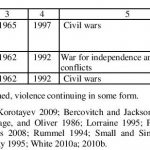Sanitation Challenges In Urban Slums – SCUSA Part 1
No comments yet
Integrated approaches and strategies to address the Sanitation Crisis in Unsewered Slum Areas in African mega-cities
Bwaise III Parish, Kampala, Uganda
Africa, though reported to be the least urbanized continent, is recognized as one where the rate of urbanization is highest. To house all these new city dwellers, informal settlements in the peri-urban areas continue to development and expand.
It is not only housing that the urban population requires: clean drinking water and hygienic sanitary conditions are also essential. Providing water and sanitation in these peri-urban areas is however very difficult, for technical, financial, institutional and spatial reasons.
Lack of proper sanitation not only leads to undignified and unhealthy conditions; stagnant water causes breeding pools for malaria, plus the streams entering and leaving the slum catchment, either as surface water or groundwater, form a significant pollutant load.
This water is polluting drinking water and, due to extremely high phosphorus fluxes from the slum catchments, eutrophying surface water. Therefore, the main research question of this project is: How to improve sanitation in urban slums, with emphasis on reducing the output of nutrients leaving the slum?
Scusa
Objectives: to identify and implement low cost integrated sustainable sanitation solutions to provide excreta and greywater management in a typical slum area. To determine the financial, institutional, and sociological mechanisms or boundary conditions for successful implementation of sustainable sanitation solutions in this urban slum and to use the lessons learned in other slum areas. To determine the effect of slums and of environmentally sustainable sanitation in slums on groundwater and surface water quantity and quality. In answering to these research objectives, UNESCO-IHE is joining forces with Makarere University from Kampala Uganda.
Comments
Leave a Reply





